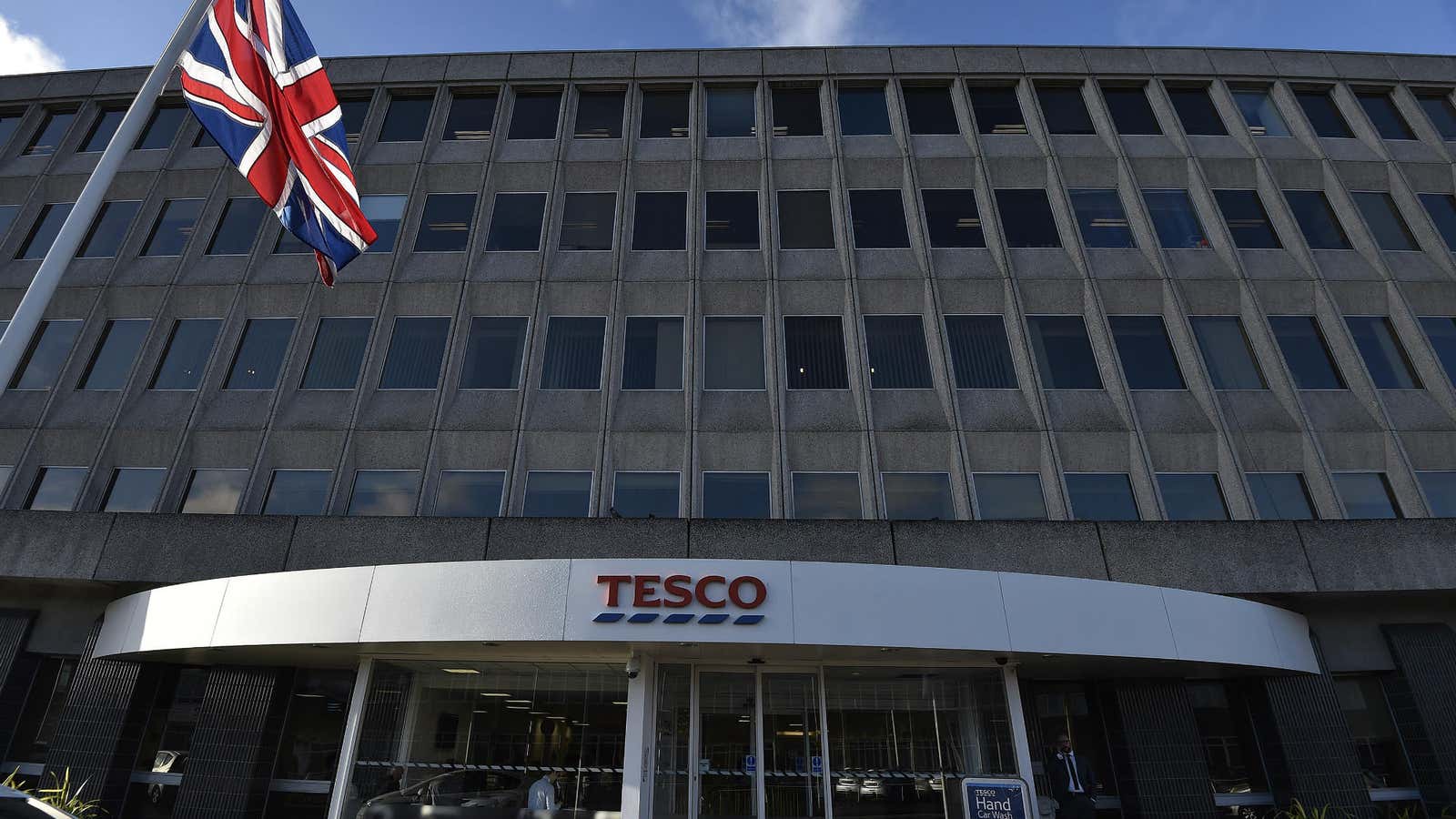Tesco, the troubled British retail group, is starting over. After an accounting scandal, a series of profit warnings, and plunge in its share price, the beleaguered company has launched a major restructuring plan. It will not pay a dividend at the end of this financial year, it will close 43 stores, it is selling off Blinkbox (a video-on-demand service), and has appointed Goldman Sachs to find a buyer for Dunnhumby, a data analytics business.
It is the last of these actions—the sale of Dunnhumby—that is particularly interesting. Potential buyers, including WPP, the global ad giant, are already lining up to snap it up for a reported £2 billon ($3 billion). Blinkbox, by contrast, went for a piffling £5 million.
What makes Dunnhumby, a company few have heard of, so valuable? The same thing that makes Google or Facebook so valuable: data.
Long before web firms started collecting data in order to better understand their users so they could target more relevant ads, Dunnhumby pioneered data collection and analysis to help Tesco figure out what its customers wanted. In 1995 Dunnhumby, then an independent company owned by Edwina Dunn and Clive Humby, launched the Tesco Clubcard loyalty program. Using data about past customer purchase habits, Tesco was able to stock its stores with precisely what customers might want in the future. It was revolutionary for the UK retail scene.
“The thing to remember is that data was thrown away in those days… there was no such thing as data mining or data profiling, this was all new,” Dunn told the BBC last year. In 2001, Tesco bought a majority stake in Dunnhumby. By 2010, it owned the whole thing.
Today, Dunnhumby is a global data services firm, working with some 20 major retailers in nearly 50 countries. Apart from loyalty cards, it also gathers data about 350 million people from television viewing patterns, online behavior, and surveys. Then it puts it all together to figure out whether someone who saw an ad on TV actually went out—or online—to buy a product.
It’s a lucrative business. About 40% of Dunnhumby’s revenue comes from retailers. The remaining 60% comes from selling data to consumer goods companies such as Coca-Cola. In 2012, it made $1 billion in revenue. All that data about people’s shopping habits is worth a lot of money.
Dunnhumby’s appeal to an ad agency like WPP is no mystery. Advertisers are keen to improve their ability to judge whether ads led to sales and if so, which ads are most effective (known in industry jargon as measurement and attribution). Snapping up a pioneer—and innovator—in data analytics is a good, if costly, way to steal a march on the competition.
For Tesco, the proceeds from selling Dunnhumby will help it repair its balance sheet, put a dent in its pension deficit, and simplify its structure. Letting go of the fast-growing, in-demand business won’t be easy, but as the retailer’s own tagline puts it, “Every little helps.”




